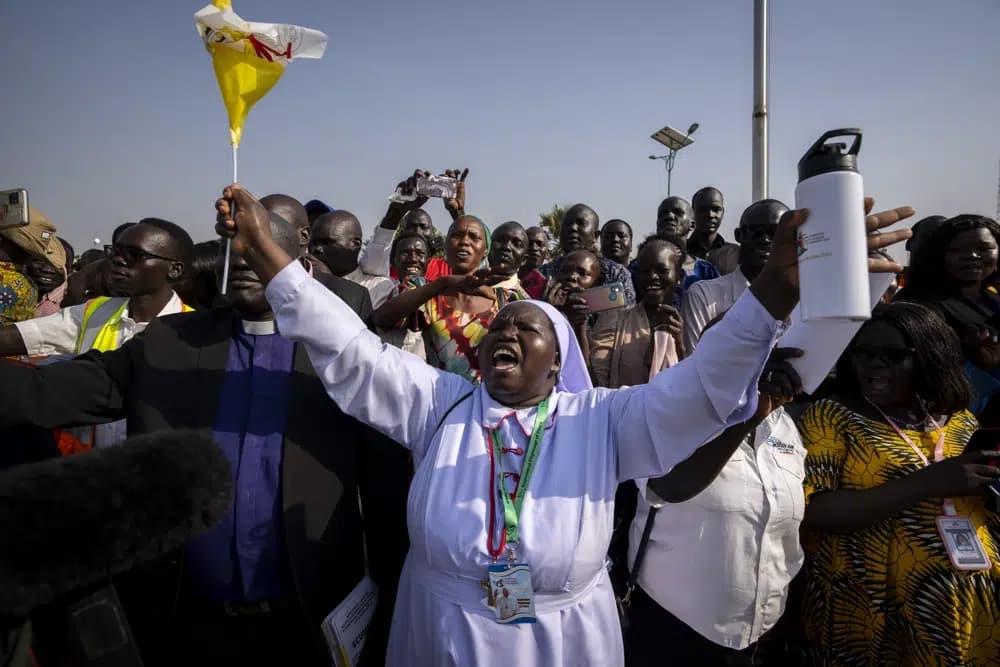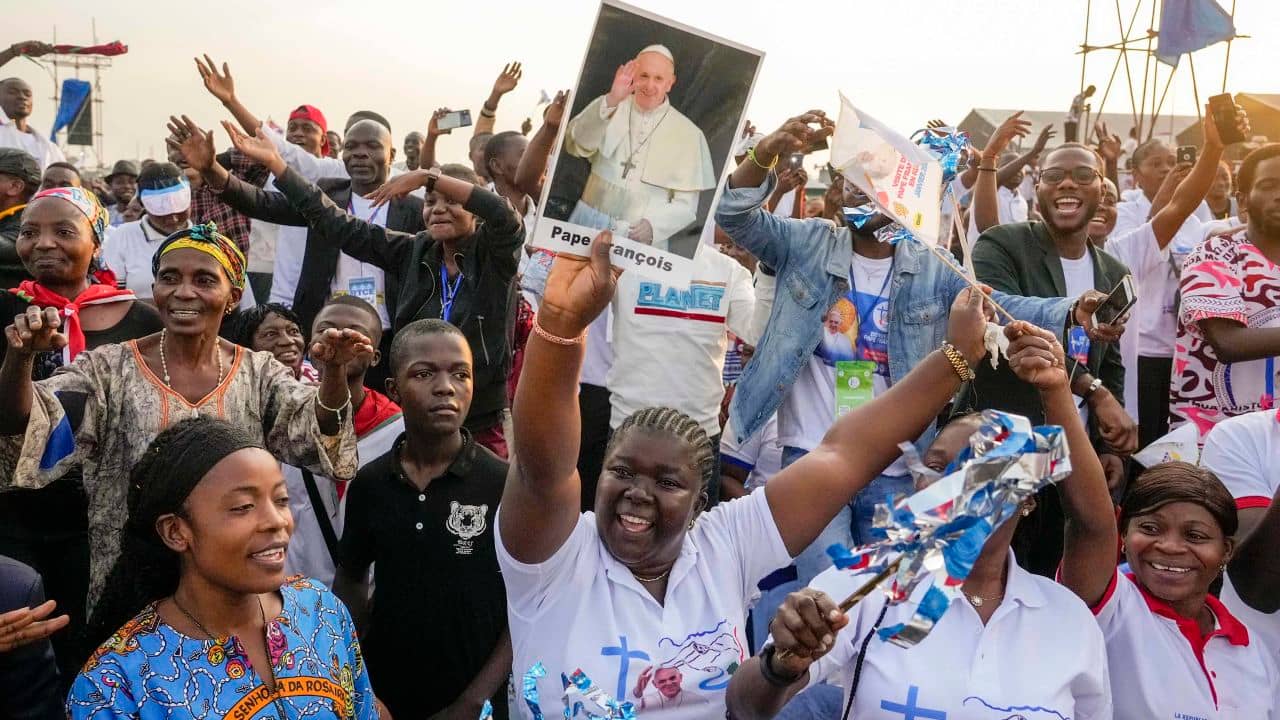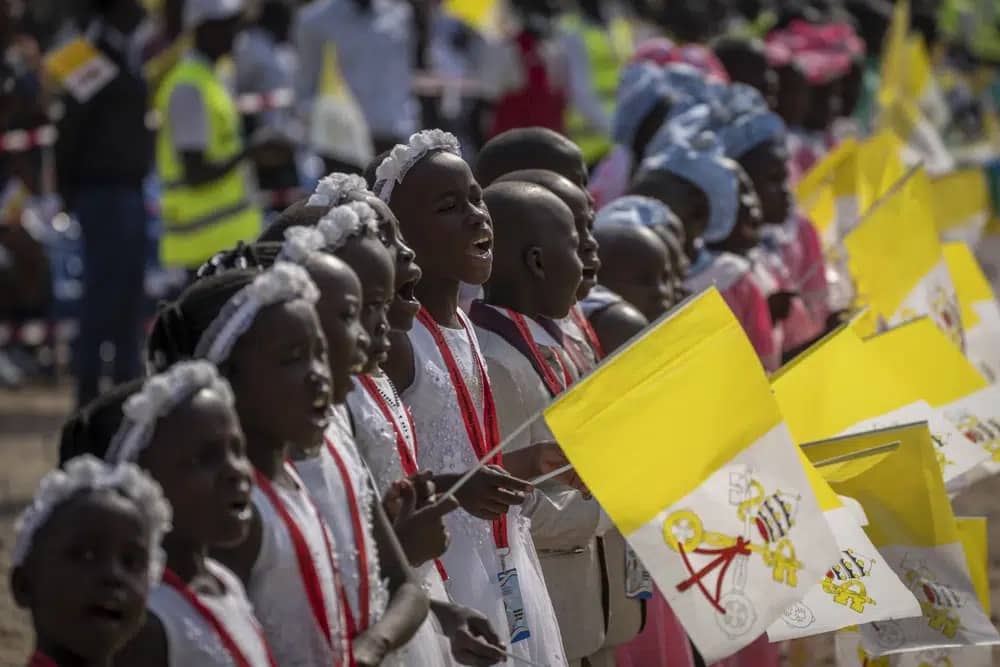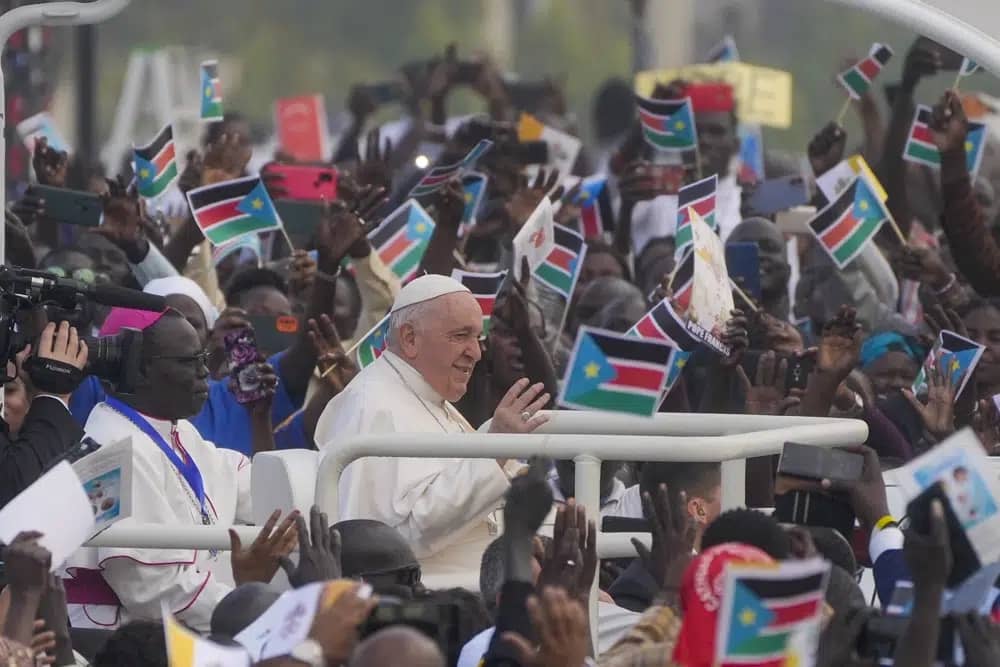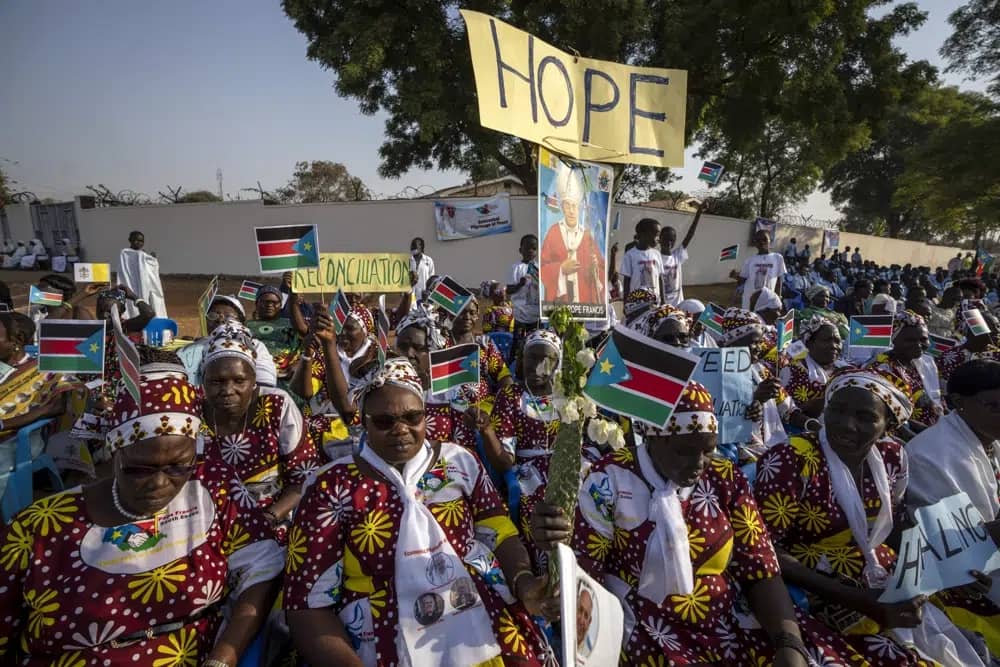JUBA – On his second day in South Sudan, Pope Francis told the country’s pastors and religious that it’s their task to stand with the people and advocate on their behalf, even at risk to their own lives.
Speaking to South Sudan’s bishops, priests, religious and seminarians at the Cathedral of Saint Therese in Juba, the pope said the church’s ministers are called to “raise our voices against the injustice and the abuses of power that oppress and use violence to suit their own ends amid the cloud of conflicts.”
“If we want to be pastors who intercede, we cannot remain neutral before the pain caused by acts of injustice and violence. To violate the fundamental rights of any woman or man is an offence against Christ,” he said.
He stressed the importance of conveying God’s closeness to people plagued by years of violence and abject poverty, saying, “it is necessary to extend our arms to our brothers and sisters, to support them on their journey.”
Pope Francis, who arrived in Juba Friday after traveling to Kinshasa, in the Democratic Republic of the Congo, is on an official ecumenical visit to South Sudan alongside the Archbishop of Canterbury, Justin Welby, and the Moderator of the Church of Scotland, Iain Greenshields.
Since shortly after its independence in 2011 South Sudan has been wracked by a violent conflict among its political leadership and several opposition groups, and while peace negotiations are making progress, much has yet to be done, as millions are still displaced and poverty in the country is rampant.
On his first night in Juba, Francis spoke to South Sudan’s political leadership, lamenting the ongoing delay in implementing a 2018 power-sharing peace agreement and urging leaders to do more to fulfill their promises.
South Sudan is a majority Christian nation, with over 60 percent of its 11 million inhabitants adhering to some form of Christianity. The bulk of Christians are either Catholic or Anglican, with Catholics numbering around 52 percent of the overall population, making the ecumenical aspect of the pope’s visit of vital importance to locals.
According to Vatican statistics, there are over 7.2 million Catholics in South Sudan, with 10 bishops and around 300 religious and diocesan priests. There are just 35 non-ordained religious men serving in the country, and roughly 218 women religious, and there are currently over 500 men in training for the priesthood.
In his Feb. 4 meeting with bishops, priests, and religious, the pope said they as ministers of God’s people have no easy task serving in a land “scarred by war, hatred, violence, and poverty,” where the banks of the Nile River that flows through the country are “bathed in so much innocent blood.”
He focused on the image of the biblical figure of Moses, who was saved as an infant after floating down the Nile, and who returned to save his people and set them free from a life of slavery under the Egyptians.
Moses was both meek and an intercessor for his people, the pope said, noting that Moses developed his meekness only after attempting to resolve injustice on his own, by killing an Egyptian soldier who was beating a Hebrew slave.
The same temptation to put oneself at the center goes for bishops, priests and consecrated, he said, saying, “we think we can find an answer to people’s suffering and needs through human resources, like money, cleverness or power. Instead, everything we accomplish comes from God.”
Francis stressed the need to entrust oneself to God, “before we get caught up in our personal and ecclesial projects.”
God, he said, helps his minsters to understand that “we are not tribal chieftains, but compassionate and merciful shepherds; not overlords, but servants who stoop to wash the feet of our brothers and sisters; not a worldly agency that administers earthly goods, but the community of God’s children.”
Pope Francis noted that Moses was also involved in the lives of his people, living among them and going up to the mountain to pray for them, acting as “a bridge that connects them to God.”
“Our first duty is not to be a Church that is perfectly organized, but a Church that, in the name of Christ, stands in the midst of people’s troubled lives, a Church that is willing to dirty its hands for people,” he said, saying those who minister to God’s people should never pursue “religious or social prestige,” but should rather stand by their people.
“Let us make every effort to banish the temptation to individualism, to partisan interests,” he said, saying, “How sad it is when the Church’s pastors are incapable of communion, when they fail to cooperate, and even ignore one another! Let us cultivate mutual respect, closeness and practical cooperation. If we fail to do this ourselves, how can we preach it to others?”
Pope Francis gave a shout-out to the many missionaries serving in South Sudan, noting that some of them have experienced violence or have been killed while exercising their ministry.
“In a very real way, they offered their lives for the sake of the Gospel. Their closeness to their brothers and sisters is a marvelous testimony that they bequeath to us, a legacy that invites us to carry forward their mission,” he said, saying, “a missionary must be ready to do anything for the sake of Christ and the Gospel.”
“We need courageous and generous souls ready to suffer and die for Africa,” Francis said.
During the event Saturday morning, the pontiff heard testimony regarding two female missionaries who lost their lives in 2021.
Sisters Mary Daniel Abut and Sister Regina Roba Luate were caught in an ambush, with Abut dying instantly and Luate succumbing to her wounds en route to a hospital. They were returning from a centenary celebration of Our Lady of Assumption parish in the diocese of Torit the day before.
Follow Elise Ann Allen on Twitter: @eliseannallen
